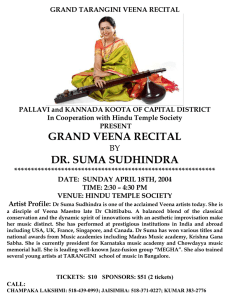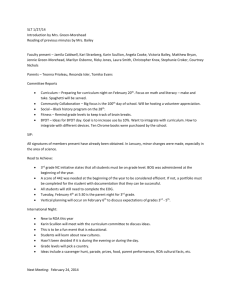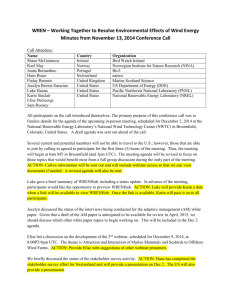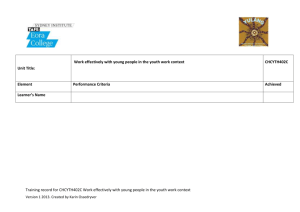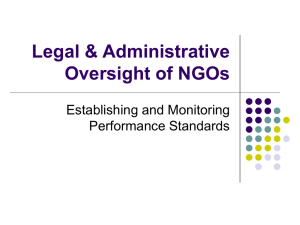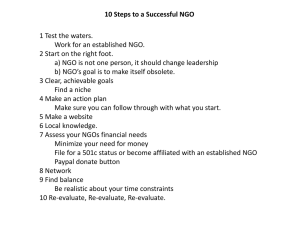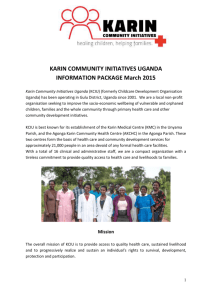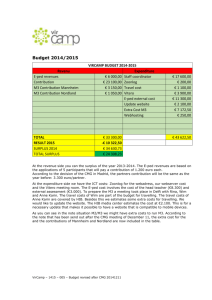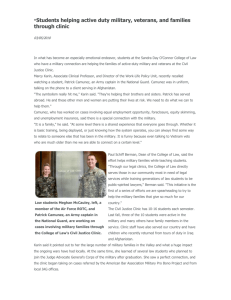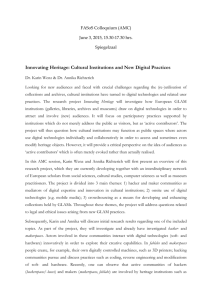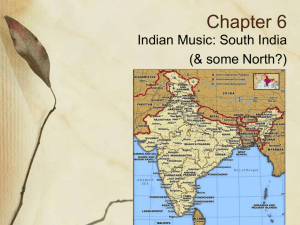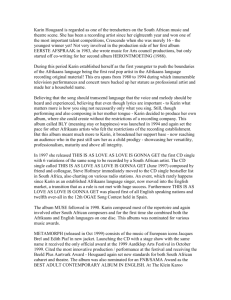funding philanthropy – creating a service ngo for mothers
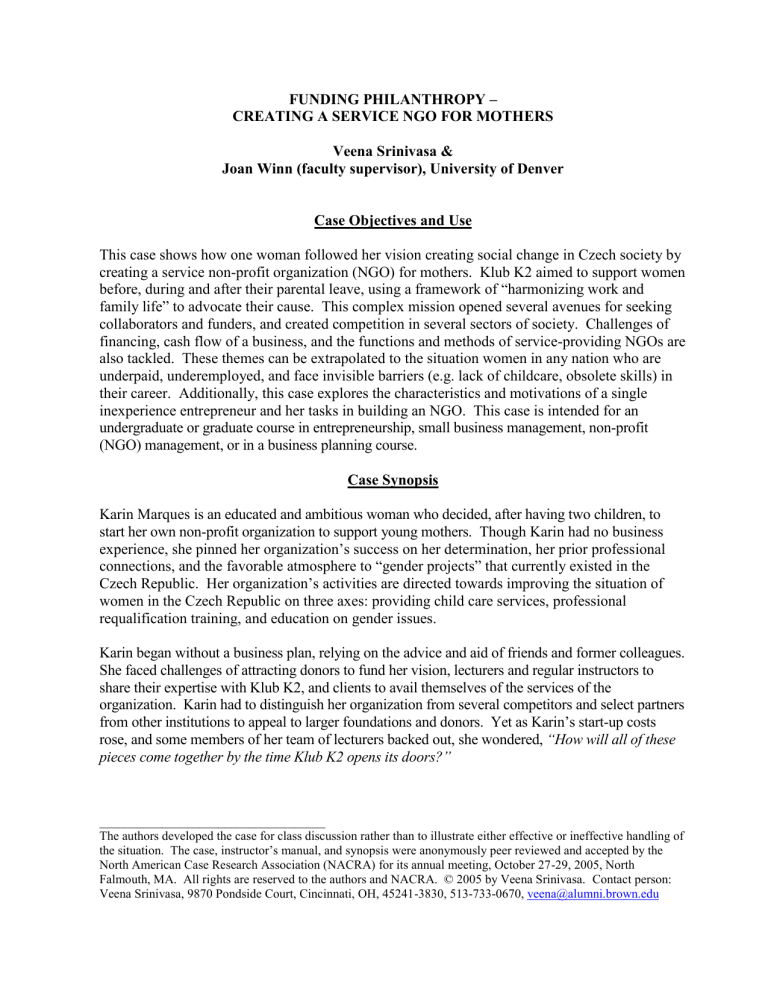
FUNDING PHILANTHROPY –
CREATING A SERVICE NGO FOR MOTHERS
Veena Srinivasa &
Joan Winn (faculty supervisor), University of Denver
Case Objectives and Use
This case shows how one woman followed her vision creating social change in Czech society by creating a service non-profit organization (NGO) for mothers. Klub K2 aimed to support women before, during and after their parental leave, using a framework of “harmonizing work and family life” to advocate their cause. This complex mission opened several avenues for seeking collaborators and funders, and created competition in several sectors of society. Challenges of financing, cash flow of a business, and the functions and methods of service-providing NGOs are also tackled. These themes can be extrapolated to the situation women in any nation who are underpaid, underemployed, and face invisible barriers (e.g. lack of childcare, obsolete skills) in their career. Additionally, this case explores the characteristics and motivations of a single inexperience entrepreneur and her tasks in building an NGO. This case is intended for an undergraduate or graduate course in entrepreneurship, small business management, non-profit
(NGO) management, or in a business planning course.
Case Synopsis
Karin Marques is an educated and ambitious woman who decided, after having two children, to start her own non-profit organization to support young mothers. Though Karin had no business experience, she pinned her organization’s success on her determination, her prior professional connections, and the favorable atmosphere to “gender projects” that currently existed in the
Czech Republic. Her organization’s activities are directed towards improving the situation of women in the Czech Republic on three axes: providing child care services, professional requalification training, and education on gender issues.
Karin began without a business plan, relying on the advice and aid of friends and former colleagues.
She faced challenges of attracting donors to fund her vision, lecturers and regular instructors to share their expertise with Klub K2, and clients to avail themselves of the services of the organization. Karin had to distinguish her organization from several competitors and select partners from other institutions to appeal to larger foundations and donors. Yet as Karin’s start-up costs rose, and some members of her team of lecturers backed out, she wondered,
“How will all of these pieces come together by the time Klub K2 opens its doors?”
____________________________________
The authors developed the case for class discussion rather than to illustrate either effective or ineffective handling of the situation. The case, instructor’s manual, and synopsis were anonymously peer reviewed and accepted by the
North American Case Research Association (NACRA) for its annual meeting, October 27-29, 2005, North
Falmouth, MA. All rights are reserved to the authors and NACRA. © 2005 by Veena Srinivasa. Contact person:
Veena Srinivasa, 9870 Pondside Court, Cincinnati, OH, 45241-3830, 513-733-0670, veena@alumni.brown.edu
